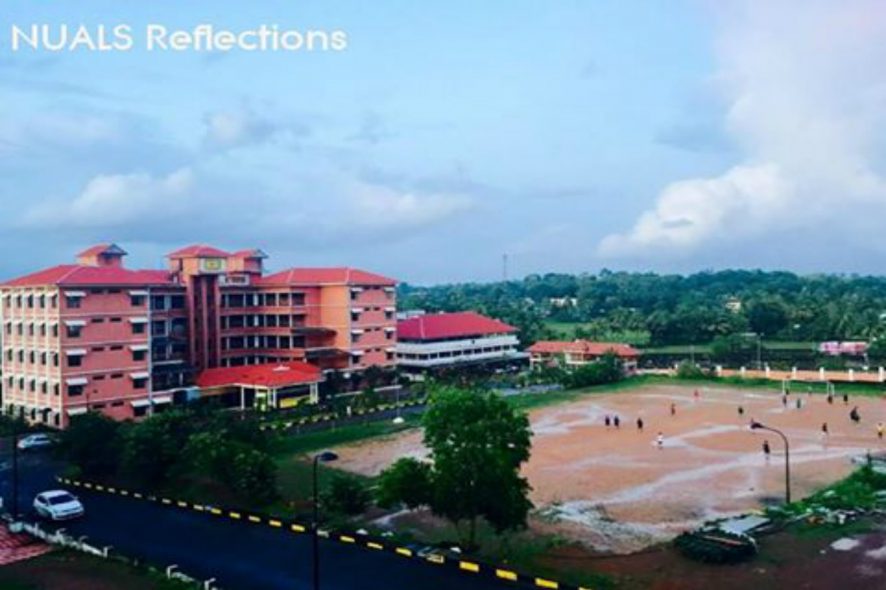ABOUT THE BOOK
The Centre for Intellectual Property Rights (CIPR), the Centre for Health Law and Policy (CHLP), and the Centre for Human Rights (CHR) under the aegis of the National University of Advanced Legal Studies, Kochi had previously collaborated in conducting four international programmes. The first edition was based on Access to Medicine and Novel Medical Technologies while the second was focused on Traditional Knowledge. The third event was on Access to Information and Communication Technologies and the fourth on Biomedical Technologies.
Last year, the book, titled Biomedical Technologies: Health, Human Rights and Intellectual Property Rights (ISBN no. 978 – 81 – 938852 – 9 – 1) was released by J. Jayasankaran Nambiar at the NUALS Campus on 25th February 2020 and had also included selected papers from those presented at the International Conference held on the same theme.
This year we are organizing the event titled Pandemics: Health, Human Rights and Intellectual Property Perspectives and are contemplating a publication on the same. Authors are invited to contribute to the book and selected chapters/papers shall be included.
The COVID-19 pandemic has once again placed public health in the spotlight. Governments across the globe are implementing mechanisms to curb the spread of the virus. Battling a novel virus has also put immense pressure on scientists and researchers to find a vaccine as well as raised concerns on resource-allocation as well as disease management. International institutions such the United Nations, WHO, WIPO as well as other supra-national entities are stressing on interdisciplinary synergies and collaborations in these difficult times to solve these numerous issues of global concern and relevance.
Thus, with multiple institutions engaged in tackling the pandemic, the analysis of three spheres of law – Health, Human Rights and Intellectual Property Rights – has become an integral part of the process.
THEMES
Papers are sought on any sub-theme relating to the main topic or any of its aspects, within the broader themes of health, human rights and intellectual property rights. The following topics are illustrative:
Health
- The Role of State in protection of Public health
- The duties of the citizenry during situations of public health crises
- Legal preparedness of India – Tackling a public health crisis
- Occupational Health and Safety Laws during a Pandemic
- The Legality of Compulsory Vaccinations
- Distributional Justice – Priority setting for Access to Vaccines and Antiviral Medications
- Global landscape: lessons and experiences
Human Rights
- Increased importance of health rights during public health emergencies
- Balancing of competing human rights: Role of State
- Addressing the Vulnerability of Migrant Workers during a Pandemic
- Xenophobic Repurcussions of a Pandemic
- Marginalization and Gender-based Violence during the Pandemic
- Addressing the Plight of Refugees and Asylum Seekers during a Pandemic
- Global landscape: lessons and experiences
Intellectual Property Rights
- Rationale for Intellectual Property Rights: Scope of exceptions and limitations
- Role of State and duties in the domain of distribution and utilization of resources: scope of intervention to private property interests
- Drug Repurposing and Other mechanisms
- Licensing Agreements during a Pandemic
- Incentivization and Open Access – Distribution of Knowledge and Innovation during a Pandemic
- Increased synergies of collaboration: future possibilities and implications
- Global landscape: lessons and experiences
Interdisciplinary themes can also be explored.
SUBMISSION GUIDELINES
- Submissions are to be made in electronic form only and are to be sent tociprpublications@nuals.ac.in[Subject is to be “Submission for ISSHI Publication”]
- The paper should be in English, not exceeding 3000-5000 words (excluding footnotes).
- The paper should be accompanied by an abstract not exceeding 350 words. Please limit keywords to 4. This shall not count towards the word limit.
- Co-authorship is permitted to a maximum of two authors.
- The cover page should include Name, Address, E-mail ID, Contact number and the name of the College/University/Firm along with the address of the author/s. In case of co- authorship, the cover page should include details of both the authors. A brief profile of the author/s not exceeding 250 words should be attached with the abstract.
- Kindly avoid the general and common information about the sub theme of your paper as far as possible as doing so may result in duplication of information in the chapters coming under a single sub-theme.
- No part of the submission should have been published earlier nor should it be under consideration for publication or a contest elsewhere.
- All contributions must represent original ideas and interpretations coupled with critical evaluation and assessment.
- Any form of plagiarism will result in immediate disqualification.
- Any queries regarding the book shall be addressed tociprpublications@nuals.ac.in
FORMATTING GUIDELINES
- The submission must follow the Bluebook system of citation 20th edition.
- The submission is to be made in Times New Roman, Font Size: For Title – 16; For Headings – 14; Main Text – 12, Line spacing: 1.5, Footnote size: 10
- Alignment shall be Justified. One inch margin to be maintained on all sides.
- Submissions may be made in .doc/.docx/.odt formats only.
- Use of headings and subheadings in consistent format is encouraged.
IMPORTANT DATES
Submission of Abstract – 20th December 2020
Acceptance of Abstract – 30th December 2020
Submission of Full paper- 15th January 2021
Acceptance of Paper – 30th January 2021
We welcome everyone to be a part of this discourse and contribute to the success of the publication as well as the virtual conference. In case of any queries, kindly email them at ciprpublications@nuals.ac.in







